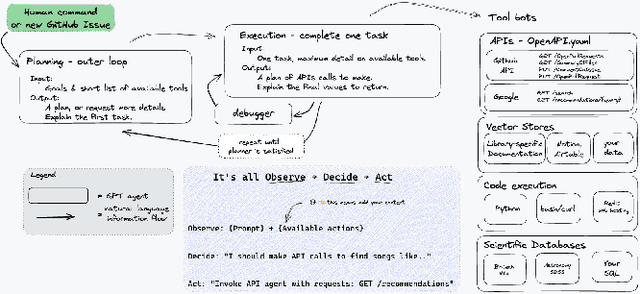Leveraging Large Language Models to Build and Execute Computational Workflows
Paper and Code
Dec 12, 2023
The recent development of large language models (LLMs) with multi-billion parameters, coupled with the creation of user-friendly application programming interfaces (APIs), has paved the way for automatically generating and executing code in response to straightforward human queries. This paper explores how these emerging capabilities can be harnessed to facilitate complex scientific workflows, eliminating the need for traditional coding methods. We present initial findings from our attempt to integrate Phyloflow with OpenAI's function-calling API, and outline a strategy for developing a comprehensive workflow management system based on these concepts.
 Add to Chrome
Add to Chrome Add to Firefox
Add to Firefox Add to Edge
Add to Edge